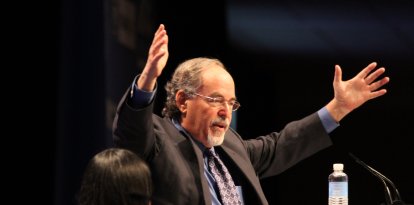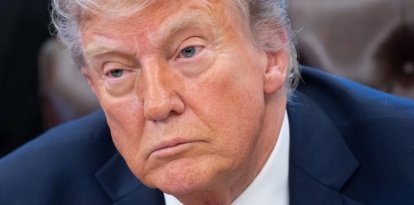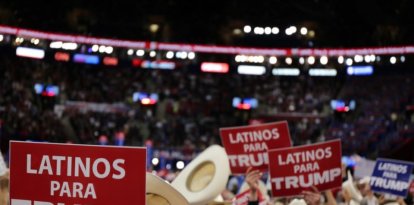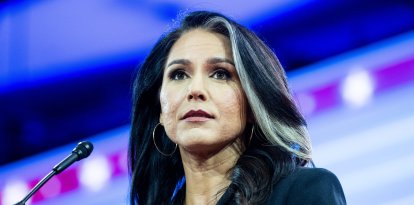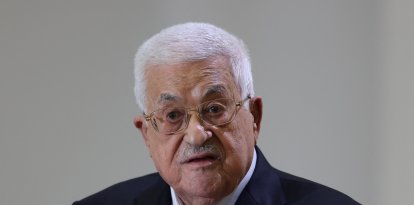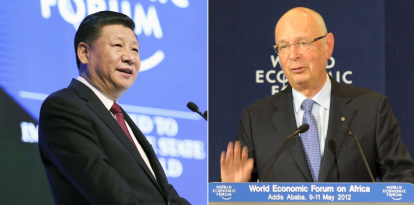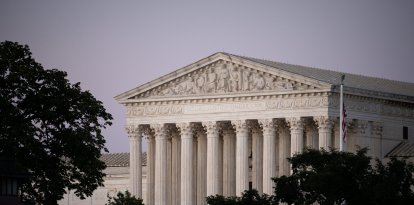Tyrannical governments, clandestine freedom: Musk and Durov
Dissenting opinion was able to be a part of public discourse thanks to encrypted spaces and the tricks used by criminals to escape the control of those in power. It was the states that transformed us into criminals.
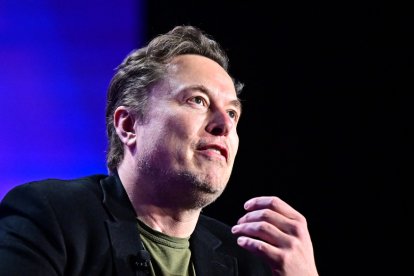
Elon Musk
The term SAMIZDAT (Russian for self-publishing) was coined by Nikolai Glazkov at the beginning of the Cold War, parodying acronyms of official publishers of the Soviet regime. It was a clandestine system of information circulation in which, to circumvent censorship, authors wrote texts, copied them and distributed them among people they trusted, who in turn made copies and distributed them. Due to the state's brutal control over printing presses and paper, copies were made by hand or by machine using carbon paper.
Amateurism was palpable in the errors of form and corrections, as well as the poor quality of printing, and that marked the difference between the SAMIZDAT and the regime's publications. The more crumpled and tattered the texts were, the more people had read them. The people who copied the texts were ordinary people, not editors or specialists; they did so willingly and at enormous risk. It was common for the authors to lose control over the work because the copyists made mistakes, removed parts and added what they wanted to the original. The state, of course, imposed cruel punishments on the people who distributed copies. The published texts were of various literary genres, including novels, poetry, scientific treatises, religious works and a huge variety of subjects. “The Gulag Archipelago” was published like this.
The tradition of publishing in secrecy is as old as the censorship exercised by those in power to prevent the free circulation of ideas. Nazi Germany is a case study in the fierce repression of opinions and dissent, because of the gradual way such repression was imposed beginning in the early 1930s. It was not permitted to possess books written by pacifists, communists, Jews, Freemasons, nor any book on politics or political science that did not praise National Socialism; nor any science book that refuted the National Socialist theory of race; nor any satirical text that ridiculed National Socialist Party members. Nevertheless, banned books continued to circulate hidden in the most unlikely places and spread clandestinely, encrypted and partitioned to elude totalitarian voracity.
The Soviet bloc has a long tradition of clandestine press: Poland since the German occupation, Czechoslovakia and Hungary all secretly printed censored books that amassed tens of thousands of copies, always with the mechanism of copying to circumvent censorship and generate a free and alternative distribution channel. Under the Iranian regime, hundreds of banned texts were published, and at the risk of severe penalties, Salman Rushdie’s “The Satanic Verses” was published illegally, even though its author was sentenced to death under fatwa for having blasphemed the prophet Muhammad.
To top it all, when it comes to issues such as security or health, the “sheeple” majority willingly accepts censorship and is willing to be quite authoritarian. Also on this topic in history, there are plenty of examples to spare, so politicians know that they have to appeal to some potential risk in health or security to implement control over what is said without encountering resistance. People do not tend to fight against the Nanny State, indeed, people love the state that tells them what to do with their lives and tend, also, to hate the one that wants to escape the clutches of that same state. That was particularly embodied in the COVID-19 lockdowns, when many people wanted to be even more strict than the politicians.
On Aug. 24, Pavel Durov, CEO of Telegram, was arrested by the French Police. He is currently being pursued by the governments of several countries. South Korea (which may well now ally itself with its northern counterpart) has joined France in the witch hunt against Durov for the entrepreneur's refusal to control the messages circulating through the app, which is nothing more nor less than a messaging platform where texts, photos and videos are freely exchanged. As it is impossible to decrypt, Telegram attracts criminals, yes; as well as political dissidents and protesters. But before it was pursued in free countries, Pavel had to flee his home country in 2014 when the Kremlin demanded he hand over data on the organizers of the Ukrainian Euromaidan protests from his previous social network, VKontakte. For years, Telegram has faced pressure from several governments of different political persuasions, which seek to control information sharing by imposing sanctions, restrictions and fines.
In the United States, the Biden-Harris administration's interest in censoring facts and opinions took the form of iron-fisted control of platforms and social networks. Recently, Meta CEO Mark Zuckerberg published a letter where he recounted that in 2021, the White House pressured his company's employees to censor content on COVID, including humor and satire, and threatened teams when they put up resistance. He promised in his letter, the “repentant” Mark, to the House Judiciary Committee to reject future attempts by the government to censor Facebook posts. With this epistle, Zuckerberg was extending the recognition of the aberrations that were committed in journalistic, scientific and legal terms on the social network obeying the Democratic government. Too bad he did it now and not when he had the opportunity to show the world the horrors contained in Hunter Biden's computer, or the criticism of the policies against COVID. The former CEO of Twitter, Jack Dorsey, acted with the same cowardice and complacency as Zuckerberg; both suppressed everything that those in power asked of them. Dorsey even went so far as to expel a democratically elected, sitting president from his platform.
Current presidential candidate Kamala Harris, back in 2019, asked Dorsey to censor Donald Trump telling him to do something about the then U.S. president. Harris argued at the time that a corporation like Twitter has obligations and must decide who can speak and who can't. She added that Donald Trump incited fear, which could potentially cause damage to democracy. What Harris acted on back then was so totalitarian that it earned her a feud with Senator Elizabeth Warren, who did not back her up in her censorious bigotry. Harris believes that those in power should mediate between information and the public. Kamala's understanding of the nature of individual rights is not dissimilar to the way it was understood by the rest of the censorious governments of 20th-century tyrannies. It differs only in the set of tools she has at hand to achieve her goals.
Hey, @jack. Time to do something about this. https://t.co/es2fJ5PNRV
— Kamala Harris (@KamalaHarris) October 2, 2019
The ineffable running mate of Kamala Harris, Tim Walz, is not far behind in his positions against freedom of speech and maintains that "there's no guarantee to free speech on disinformation or hate speech, and especially around our democracy" (actually there is guarantee; it is in the U.S. Constitution). But, as in the darkest times of human history, the sustained pressure by the government against free speech is already a natural part of the life of Americans who have seen the coordinated and shameful way in which social networks and the government partnered to lie to them.
Mark Zuckerberg's confession, in this context, is not newsworthy; we all knew what he revealed. We all suffered the news blackout immediately after lockdowns were imposed globally. Using social media to debate, oppose “covidocracy” or disseminate scientific information that went against the narrative of those in power became impossible, and less controlled apps or websites mostly known for piracy and other illegal activity began to be used. Every person who had any doubts, divergences or the suspicion that something abnormal and bad was happening, was called a conspiracy theorist, murderous, selfish, asocial and perverse. We were living through a historic attack on rights and freedoms in terms of scale and scope, and we were not even allowed to comment on it. But even so, dissident opinion was part of the public debate thanks to encrypted spaces, to the ruses reserved for criminals to escape the control of those in power. It was the states that transformed us into criminals.
In 2022, Elon Musk acquired Twitter and exposed the ways in which governments sought (mostly successfully) to suppress freedom of speech on his social network. He did so also with Brazil, where the plenipotentiary underworld made up of the president and a judge of infinite power pressured social networks, media and internet providers to silence political dissent, suppress information contrary to the government, cancel investigations on authorities and also attack humor and sarcasm. They invented the Carioca Khomeini, and Musk exposed it publicly.
For the sin of publishing what those in power do not want, Musk has faced dozens of lawsuits from governments in the U.S., Europe, Latin America, and the blows keep coming. The Durov case has shown him that, from now on, he should think 100 times before traveling to countries with “liberal democracies” where people can go to jail for respecting freedom. Let's be honest and objective, it is unlikely that digital industries will fight censorship in a timely manner; Mark Zuckerberg's confession serves as an example. The risk of infuriating the government agencies that regulate them is high, and there is a Rubicon to cross that is too steep if one considers litigating against them for the unpayable fines, the regulations, and for the delusional but possible accusations such as those of Judge de Moraes or the bureaucrat Thierry Breton. What would make them take the risk? The standards of coercion are stifling for the titans, which brings us to another question: what ordinary citizen would take the risk?
Currently in Britain there are people in jail for posting memes or contradicting government ideology. Australia, Germany and so many other countries have doubled down in their efforts against freedom of speech and the democratic mechanisms that should put limits on these outrages have been complicit in them. Neither the judiciary nor the legislature are fulfilling the role for which they were created in democracy, today, around the world. They are just another part of the consortium of power that oppresses the most basic freedoms.
In this dark picture, Elon Musk and Pavel Durov are the guardians of SAMIZDAT. They represent the limit beyond which progressive institutionality does not know how to overcome digital challenges. They are the rational border containing progressive control over people's lives and over public discourse that died with the emergence of a popular internet. The phenomenon is less than two decades old and governments have already given up, so they are starting to imprison. The arrest of Durov and the persecution against Musk are signs of their impotence and anger. The state does not want to know what criminals and terrorists do; what it wants to know is what ordinary people do and say. Nowadays, social networks are where the dissident discourse is as chaotic, incorrect and untamed as in a SAMIZDAT. If governments have gone back to being tyrannies, free speech will go back to being clandestine.
RECOMMENDATION
